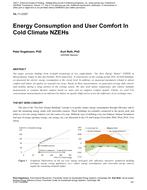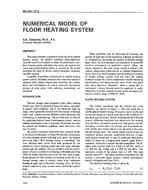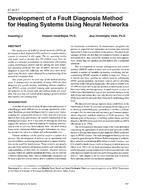This paper will examine the challenges for energy-efficient ventilation that shopping malls present. In these buildings, the retail stores are often heated, cooled and ventilated separately from the mall central spaces, yet are connected to them by large, open doorways through which natural air exchanges occur, hence inextricably linking the two spaces. However, the central spaces of the mall are usually deemed to have the potential for more relaxed ranges of interior conditions than the retail stores adjacent to them, and regulatory requirements for these two types of space can also differ. The façade and roof access to the central spaces of malls mean that they have the potential to be ventilated naturally, or with a hybrid ventilation scheme. The extent to which this is beneficial depends on the local climate, as well as aspects of mall design such as glazing extents, and potential for low-level and high-level ventilation openings.
This study examines potential strategies for reducing energy use in such buildings by means of natural and/or hybrid ventilation of the mall central spaces. These strategies need to be formulated with the aim of reducing the whole building energy consumption, taking into account both the heating and cooling demands for the central space, and those of the adjacent retail stores interacting fluid mechanically with it. A numerical thermodynamic model has been developed to investigate this with respect to energy consumption and internal comfort of a hypothetical mall under various ventilation strategies. The influence of ventilation strategy on cost of plant (capital and maintenance) will also be discussed.
Product Details
- Published:
- 2012
- Number of Pages:
- 11
- File Size:
- 1 file , 2.9 MB
- Product Code(s):
- D-CH-12-C074
- Note:
- This product is unavailable in Russia, Belarus


